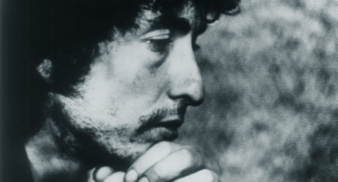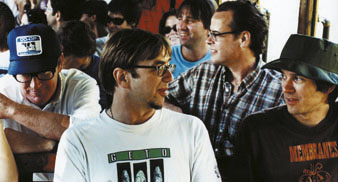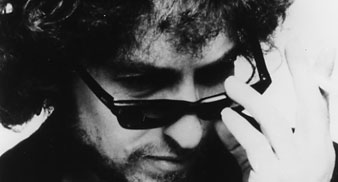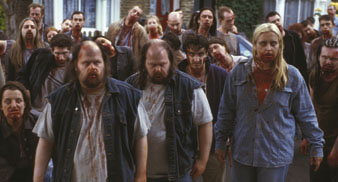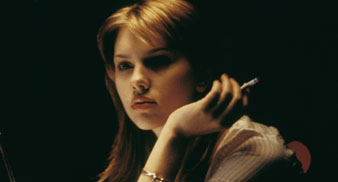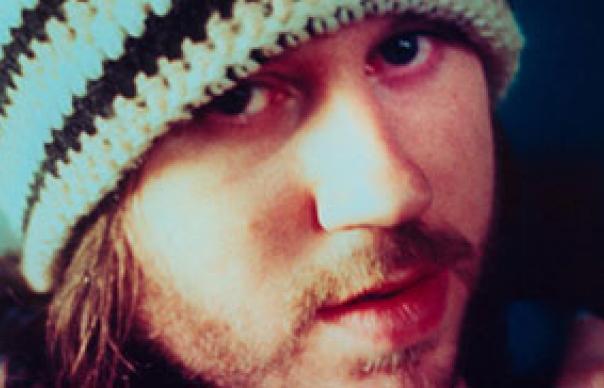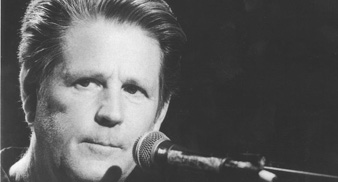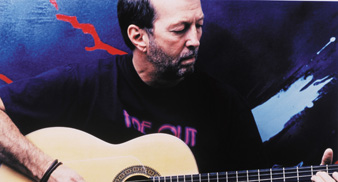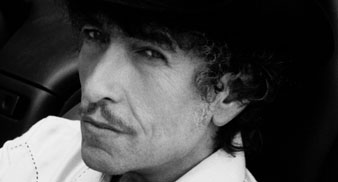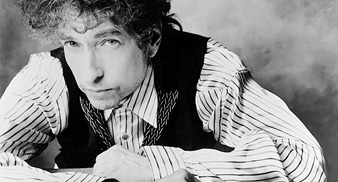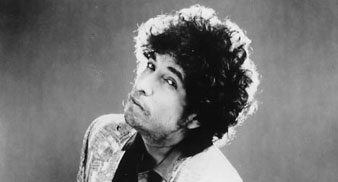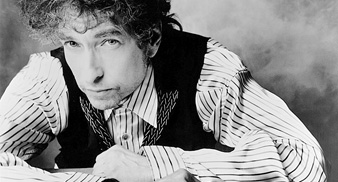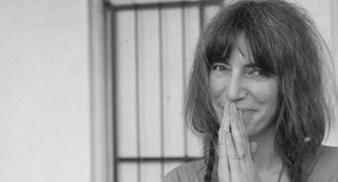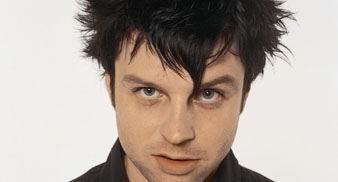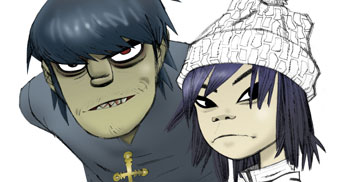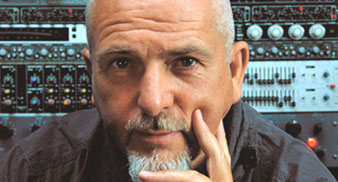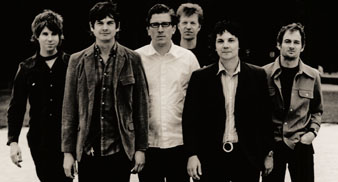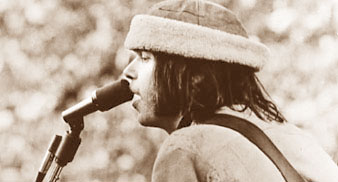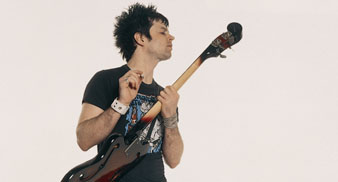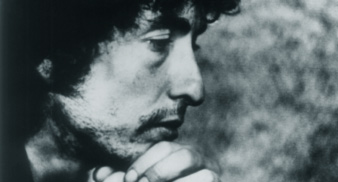Allan Jones survives a fourth day of the 'never-ending tour' Bob Dylan Bill Graham Civic, San Francisco Monday, October 17 2006 Tonight sees the youngest crowd and the most expensive beer of the tour so far. There are kids as young as 12 running around here - their age the equivalent of the number of dollars you are expected to pay for a beaker of Heineken, a grimly extortionate price that the spirit of wily old promoter Bill Graham lives on beyond his demise, Bill still raking in a whopping profit in whatever afterlife he now inhabits. The Civic turns out to be the first non-seated venue of the current trek, and the place is packed and rowdy and loves Kings Of Leon, playing their fourth show with Dylan and getting into their stride now, buoyed by the crowd’s enthusiasm. For the first time at any of these shows – and despite San Francisco’s strict non-smoking policy and anti-drug laws – there’s a conspicuous whiff of marijuana in the air. I can’t see anyone actually lighting up or smoking anything resembling a spliff, though. Maybe some enterprising young psychedelic technician at work in a basement lab in Haight Ashbury, a noble son of Owsley, has come up with a way of absorbing what you’d normally smoke by rubbing it all over yourself as a body oil. Here’s to him, if he has – and pass me the bath sponge. Tonight’s show, meanwhile, is a dark and turbulent thing – in many ways the most intense so far. The set features only three new inclusions – a gloomy “Lenny Bruce”, as the opening number, which gets a big cheer at the end although I’m not sure quite how many people either recognise it or have even heard it before, a dramatic “Senor” and a skittering “I’ll Be Your Baby Tonight”, with Bob crooning like he’s auditioning for Bob Wills’ Texas Playboys, and snappy work from guitarist Denny Freeman and Donnie Herron on pedal steel. Bob starts in strong voice, but there’s an occasional hint of fatigue as the result of four shows in six days. He also seems troubled by a cough that makes him fluff a couple of vocal entries. It’s no big deal to anyone in the crowd, apart from the kind of hardcore Bobcats who pounce on such things as if they are the end of the world. Despite rumours of a surprise appearance, there’s no sign of Neil Young, so often a guest at Bob’s Bay Area shows. But the appearance in the audience of the Dead’s Phil Lesh causes a suitably excited commotion. Still, there’s always tomorrow night. Set list: San Francisco, California Bill Graham Civic Auditorium October 17, 2006 1. Maggie's Farm 2. She Belongs To Me 3. Lonesome Day Blues 4. Simple Twist Of Fate 5. Rollin' And Tumblin' 6. Boots Of Spanish Leather 7. 'Til I Fell In Love With You 8. I Shall Be Released 9. Highway 61 Revisited 10. John Brown 11. Most Likely You Go Your Way (And I'll Go Mine) 12. Workingman's Blues #2 13. Summer Days (encore) 14. Thunder On The Mountain 15. Like A Rolling Stone 16. All Along The Watchtower
Allan Jones survives a fourth day of the ‘never-ending tour’
Bob Dylan
Bill Graham Civic, San Francisco
Monday, October 17 2006
Tonight sees the youngest crowd and the most expensive beer of the tour so far. There are kids as young as 12 running around here – their age the equivalent of the number of dollars you are expected to pay for a beaker of Heineken, a grimly extortionate price that the spirit of wily old promoter Bill Graham lives on beyond his demise, Bill still raking in a whopping profit in whatever afterlife he now inhabits.
The Civic turns out to be the first non-seated venue of the current trek, and the place is packed and rowdy and loves Kings Of Leon, playing their fourth show with Dylan and getting into their stride now, buoyed by the crowd’s enthusiasm.
For the first time at any of these shows – and despite San Francisco’s strict non-smoking policy and anti-drug laws – there’s a conspicuous whiff of marijuana in the air.
I can’t see anyone actually lighting up or smoking anything resembling a spliff, though. Maybe some enterprising young psychedelic technician at work in a basement lab in Haight Ashbury, a noble son of Owsley, has come up with a way of absorbing what you’d normally smoke by rubbing it all over yourself as a body oil.
Here’s to him, if he has – and pass me the bath sponge.
Tonight’s show, meanwhile, is a dark and turbulent thing – in many ways the most intense so far. The set features only three new inclusions – a gloomy “Lenny Bruce”, as the opening number, which gets a big cheer at the end although I’m not sure quite how many people either recognise it or have even heard it before, a dramatic “Senor” and a skittering “I’ll Be Your Baby Tonight”, with Bob crooning like he’s auditioning for Bob Wills’ Texas Playboys, and snappy work from guitarist Denny Freeman and Donnie Herron on pedal steel.
Bob starts in strong voice, but there’s an occasional hint of fatigue as the result of four shows in six days. He also seems troubled by a cough that makes him fluff a couple of vocal entries. It’s no big deal to anyone in the crowd, apart from the kind of hardcore Bobcats who pounce on such things as if they are the end of the world.
Despite rumours of a surprise appearance, there’s no sign of Neil Young, so often a guest at Bob’s Bay Area shows. But the appearance in the audience of the Dead’s Phil Lesh causes a suitably excited commotion.
Still, there’s always tomorrow night.
Set list:
San Francisco, California Bill Graham Civic Auditorium October 17, 2006
1. Maggie’s Farm
2. She Belongs To Me
3. Lonesome Day Blues
4. Simple Twist Of Fate
5. Rollin’ And Tumblin’
6. Boots Of Spanish Leather
7. ‘Til I Fell In Love With You
8. I Shall Be Released
9. Highway 61 Revisited
10. John Brown
11. Most Likely You Go Your Way (And I’ll Go Mine)
12. Workingman’s Blues #2
13. Summer Days
(encore)
14. Thunder On The Mountain
15. Like A Rolling Stone
16. All Along The Watchtower


